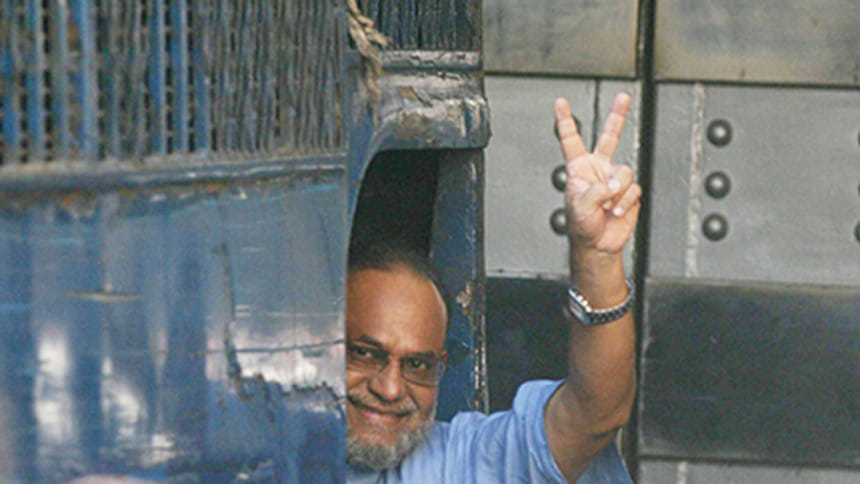Pakistan 'saddened' by Mir Quasem execution

Pakistan has said it is deeply saddened by the execution of Jamaat-e-Islami leader Mir Quasem Ali for the crimes committed before December 1971.
In a statement issued on Saturday, Pakistan foreign ministry said the act of suppressing the opposition, through “flawed trials”, is completely against the spirit of democracy.
“Ever since the beginning of the trials, several international organisations, human rights groups, and international legal figures have raised objections to the court proceedings, especially regarding fairness and transparency, as well as harassment of lawyers and witnesses representing the accused, “ the statement said.
It said, “The government of Bangladesh should uphold its commitment, as per the Tripartite Agreement of 1974, wherein it "decided not to proceed with the trials as an act of clemency."
“Recriminations for political gains are counter productive,” reads the statement adding, “Pakistan believes that matters should be addressed with a forward looking approach in the noble spirit of reconciliation.”
Pakistan offers deepest condolences to the bereaved family members, it said.
Quasem, the chief of notorious Al-Badr Bahini in Chittagong in 1971, was executed at Kashimpur Central Jail-2 at 10:30pm last night for committing crimes against humanity during the Liberation War. He was the fifth Jamaat and sixth war criminal so far executed for war-time crimes.
After the execution of all other war criminals, Pakistan issued almost similar statements creating a huge outrage in Bangladesh.
The government strongly protested the Pakistani move terming it an attempt to interfere the internal affairs of the country and asked them to refrain from doing so in future.

 For all latest news, follow The Daily Star's Google News channel.
For all latest news, follow The Daily Star's Google News channel. 







Comments